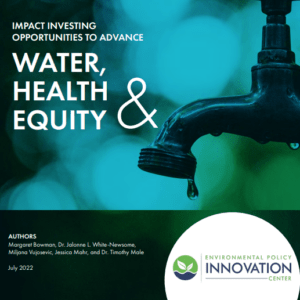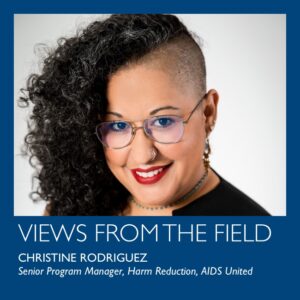Upcoming Events
Past Events
Latest Resources
SASH: Health Equity Begins at Home
A decade ago, primary care practices and housing non-profits in Vermont partnered to reduce chronic conditions among older adults and younger adults with a disability in collaboration with the state’s Blueprint for Health. Today, as an extender of the Blueprint, Support and Services at Home (SASH), which supports healthy aging in place, is helping to advance health equity in the state.
What Can Be Done About Disparities in Birth Outcomes? Follow The BIPOC Leaders
There has long been a movement of Black, Indigenous, and People of Color (BIPOC) birth and reproductive justice leaders addressing the impact of racism and oppression on pregnant and birthing people and their families. Their work has galvanized funders and policymakers to focus their efforts on ending the inequities in birth outcomes, opening up a national conversation about advancing community driven solutions to our country’s perinatal health crisis as well as creating opportunity for change within philanthropy.
Blue Cross Blue Shield of Massachusetts Foundation: January 2023
The Blue Cross Blue Shield of Massachusetts Foundation announced a call for proposals for its two responsive grantmaking programs: Special Initiative and Catalyst Funds.
Blue Cross Blue Shield of North Carolina: January 2023
A recent external evaluation and new report from the Blue Cross and Blue Shield of North Carolina Foundation, “Centering Equity in Grantmaking,” has identified several successes as well as lessons learned related to the foundation’s efforts to center equity and to design a grantmaking process that is inclusive and accessible.
Promoting Health Equity and Combating Racism Through Health Policy
Not every foundation is comfortable with trying to affect health policy.
Nevertheless, for philanthropies committed to promoting health equity, shaping governmental action at every level is a powerful tool that deserves close examination.
Impact Investing Opportunities to Advance Water, Health, and Equity
A new report from the Environmental Policy Innovation Center and supported by the Robert Wood Johnson Foundation outlines ways that philanthropy can use strategic investments to help ensure that drinking water is safe for all.
Promoting Diversity, Equity, and Inclusion in the Health Care Workforce
The Josiah Macy Jr. Foundation is the only national foundation solely dedicated to improving the public’s health by advancing change in the education of health professionals. The Foundation’s current focus is the clinical learning environment where the health care workforce both acquires skills and delivers care.
The Gilead Foundation: Advancing Health Equity Through Education Equity in the U.S.
While the COVID pandemic and most recent racial reckoning galvanized the traditional health philanthropy community, many corporate funders made their first foray into supporting racial and social justice efforts as well as health equity. Corporate social responsibility efforts were, and continue to be, scrutinized as merely cosmetic public relations efforts with no real long-term, institutional commitments to driving meaningful change in Black and Brown communities that have long been historically, intentionally marginalized.
Health Philanthropy’s Equity Blind Spot: Syringe Services Programs
Syringe services programs (SSPs) have existed, mostly under the radar, in the United States since the early days of the response to the HIV epidemic. Illegal then, and still illegal in many jurisdictions across the country today, sterile syringe access is a bedrock of harm reduction.
Connect With Funder Peers on Health Equity
Interested in exchanging strategies, information, and questions with your funder peers? Sign up for GIH E-Forums.
Strengthen your knowledge, skills, and capacity.
GIH focuses our programming around five areas that are critical to achieving better health for all.
We invite you to explore the resources available on our focus areas pages, browse content in more specific issue areas, and to connect with GIH staff to discuss how we can partner and support your work.









